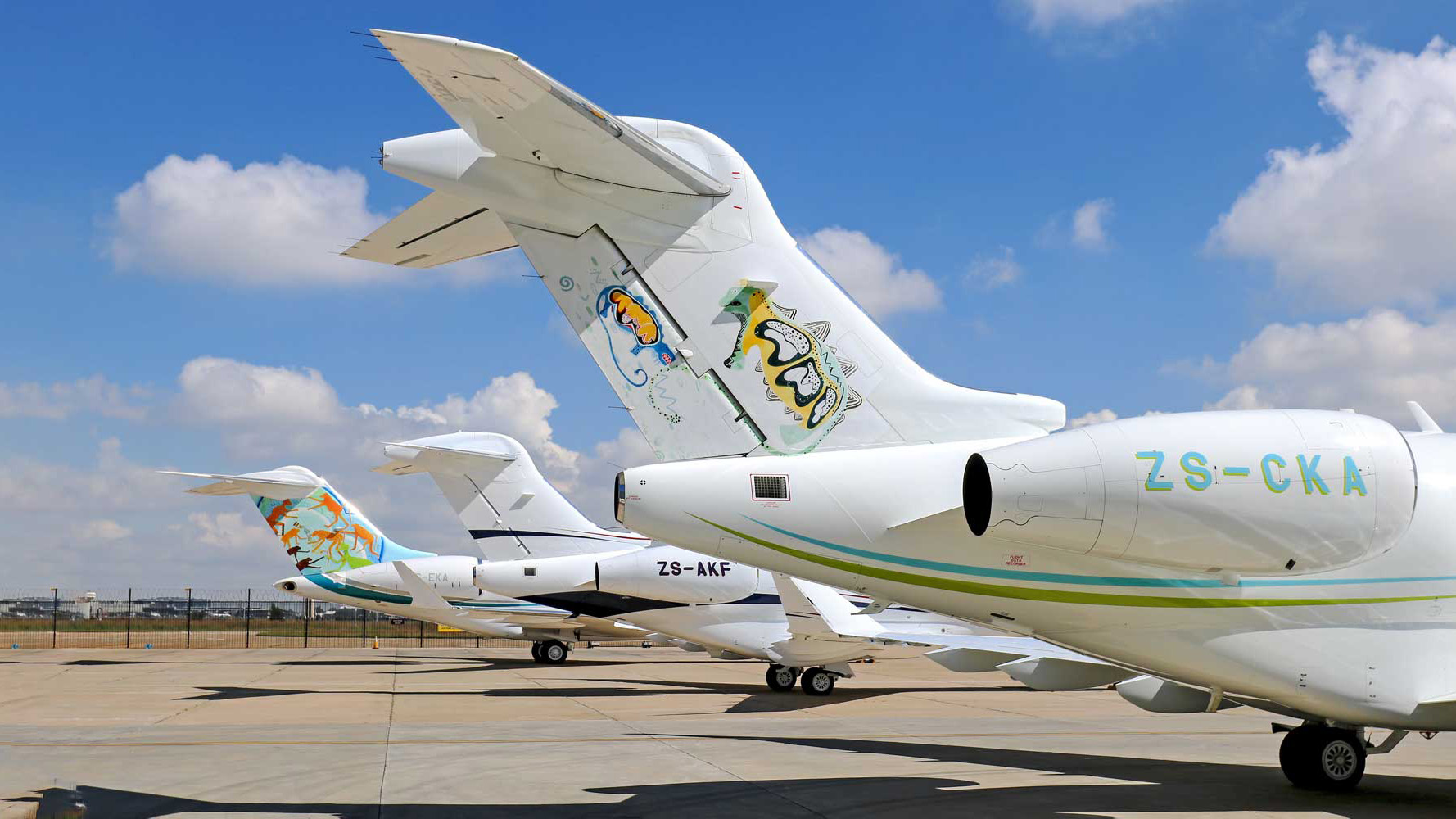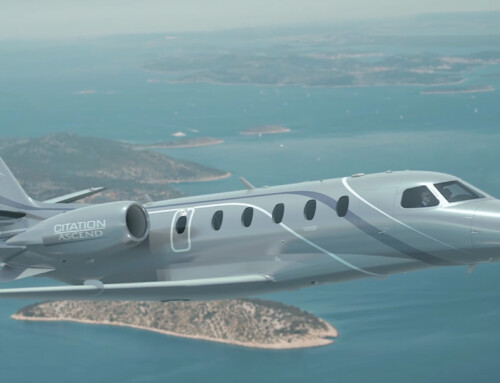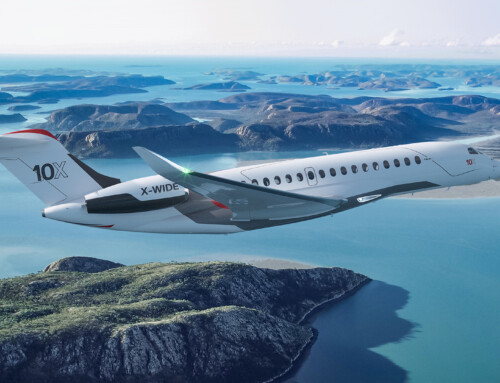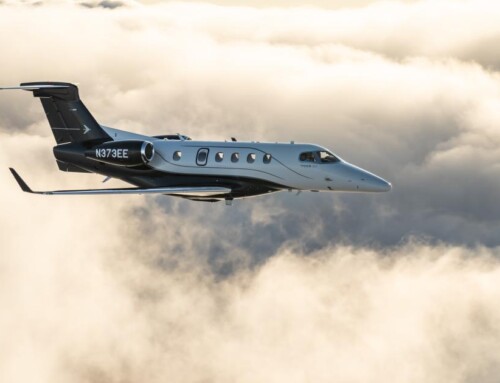The Fireblade fleet of Bombardier Challenger 350s and (left) a Bombardier Global 6500. (Photo: Fireblade Aviation)
Although business aviation has prospered in Africa over the past 12 months due to Covid-19’s destabilizing effects on its airlines, several challenges remain to successful operations.
Hamish Harding, chairman of Dubai-based broker, Action Aviation, sees big opportunities. “There are always things happening in Africa, and chances to do good transactions,” he said. “Covid lockdowns in different places … carry on causing issues. It’s a bit unpredictable, as to which countries will be open for business, but, absolutely, there’s demand in the usual locations for business jets in Africa at the moment.
“Angola, with the oil price higher, is still very strong. Even the likes of Kenya do have requirements.”
The focus of Dubai-based Empire Aviation Group (EAG) has remained on Nigeria. It has added a GIV-SP to its Lagos fleet, which currently consists of three airplanes. “We are in discussions for additional aircraft, and it remains a fairly active market for us,” said managing director Paras Dhamecha.
He was frank in saying EAG had been slow to explore other African opportunities. “
Krimson Aviation
The Krimson Aviation management team, left to right: Betelhem Shumu (MarCom Executive), Leul Mesfin (Flight Ops Team Leader), Gideon Girma (Commercial Manager), Dawit Lemma (CEO), Michael Mesfin (Koncierge and Services Manager), Helina Teshome (Managing Director). (Photo: Krimson)
Dawit Lemma, CEO, Krimson, Addis Ababa, said Covid helped Ethiopia blossom last year. “People are more receptive … ,” he said. “There are new regulations, not just on aviation; banking regulations on paper loosened up. Now, for example, I can apply for a loan from a foreign bank to finance an aircraft.”
The private aviation sector was opening up. “The reality is that it might take three, four or five years. The sheer size of Ethiopia, the strategic location along the Red Sea with the Horn, in terms of air distance, are important factors. Addis Ababa is equidistant from Frankfurt to Johannesburg and New York to Tokyo. That’s a clear factor for business aviation prospects, just as much as it played a role in the growth of Ethiopian Airlines.”
Nuno Pereira, CEO and Founder, Bestfly, Angola, told AIN that challenges in sub-Saharan Africa related to oil prices. “If the economies of the countries that are oil-rich grow, through higher prices, better opportunities for business aviation will come,” he said. “When prices go down, everybody struggles.”
Today, African regulators better understand business aviation’s needs. Business aviation is now often not just seen as a luxury, but a way to grow economies. Where in the past asset ownership was key, people are now more inclined to make rational and proper use of private planes, to help businesses grow.
“[T]he wealthiest individuals and corporations still own their own assets, but we see an increasing shift towards sourcing from reliable and reputable operators that can provide them capacity without actually investing in the asset. That’s why Bestfly decided, about two years ago, to shift strategy.”
When it started out in 2009, Bestfly faced difficulties in obtaining overflight and landing permits. “Today, it’s easier to get permits all over Africa,” he said. “Now, even countries that would take five, six, seven days, provide permits on the same day, which shows that there’s been a change.”
He sees a shift in the mentality of the regulators and aviation authorities, towards viewing bizav as a source of revenue for the country, rather than a threat to sovereignty.
“I have to say even, for instance, Nigeria greatly improved in terms of response times. Cameroon was one of the most difficult countries to get landing permits. The work done by companies like Bestfly, EAN, and ExecuJet, has helped, working with the civil aviation authorities, to explain the needs of the business. A decade ago, if you did not apply for the permit 72 hours ahead, you would not get it. Today, they understand.”
Switzerland’s Vertis Aviation said a number of African heads of state were its clients, smoothing the granting of overflight permits; it works with a partner in Dubai to source permits quickly when needed.
“In terms of aircraft available in Africa, there aren’t many providers that we use that often,” said firm partner Jeffrey Emmenis. “We normally bring aircraft in that meet our criteria, if we can’t find a suitable aircraft regionally. Our customers value our finding the right balance between price and the aircraft. We work exclusively to market the aircraft from Fireblade Aviation … in South Africa.”
He said it was unlikely the FBO concept would be revolutionized in Africa near term. Many governments had been in existence for a very long time, making the continent extremely bureaucratic. Many parts of Africa did not have the money or investors willing to come in to drive FBOs forward.
“I travel often around Africa, and you see a lot of Chinese influence in building of new airports; private jets will continue to go through the main terminal or through the government lounges, at a fee. I don’t see business aviation, FBOs, staying at the top of their agenda. The focus isn’t on building FBOs, when there are so few business jets.
“To take an example, would you build an FBO for the lone Vertis 604 based in Ghana? Probably not.”
In contrast, Ethiopia was very progressive. ExecuJet had done incredibly well, in what was effectively a G20 country, South Africa. “If you go to Nigeria, it’s extremely established, with a lot of wealth in the country, driven by oil,” he said. “The same in Angola, where you have Bestfly and VIPAero. Those countries have created incredible facilities because they’re being driven by a need, which arises from commodities and government use.”
Björn Ischner, who runs executive business development for South Africa’s Fireblade Aviation, said the continent had huge growth potential in an underserviced market. Though some countries had FBOs, there was a shortage, compared to demand. Governments were looking to private investors to assist with FBO projects.
“Looking at our market segment, [and] aviation movement growth … in the last five years, … I believe that African governments and private investors are looking at how service elevation [in] this market segment can not only generate revenue, but also improve the experience when visiting a country,” he said.
Mohammed Al Husary, UAS Co-Founder and Executive President, said the sheer vastness of the continent, coupled with differences from state to state in regulations and bureaucratic expectations, made planning and executing business operations extremely challenging.
“This is an exciting region for bizav, albeit highly specialized,” he told AIN. “There can … be a lot of uncertainty about the availability of fuel or equipment for handling requirements at certain airports. Compound that with cultural and language barriers, and it’s easy to see why business aviation missions to Africa can cause operators big headaches.”
Historically, sub-Sharan Africa has seen much political and economic instability, and lenders are typically less comfortable dealing with an uncertain market. Leadership changes within a country also brought different perspectives to owning an aircraft, such as higher taxes on aircraft, and changing operating requirements, said Simon Davis, sales director, Global Jet Capital.
Aircraft are traditionally denominated in US dollars, and concern about foreign exchange risk for an African business is important. The lack of access to US revenues is an issue, especially if a country puts a moratorium on exchanging local currency revenues into dollars, as seen in the past with Nigeria.
“There has been a shortage of well-qualified operators in many locations, although this is starting to change,” he said. “As the aircraft is a fundamental security element in any lending solution, the quality of the operator in maintaining the aircraft is of primary consideration for a lender.
Local banks are often reticent in providing financing for such a significant asset, one that they usually do not have any experience in underwriting. These factors all contribute in varying degrees to make financing difficult to obtain, which impacts the number of potential aircraft buyers.
“Hesitancy to rely on an unknown local operator will impact a lender’s desire to underwrite a transaction of this type,” Davies said. “Additionally, lenders look to rely on the operator to assist in a potential repossession scenario. A small, local operator may not have the independence, financial or otherwise, a lender would want to see to have faith in the repossession ability of the operator.”
Evgeniy Pashkov, SatCom Direct’s Regional Director Eastern Europe and MEA, said the African market was evenly split by business aviation connectivity. “It is equally valued by private and corporate users on one side, and government operations on the other as Heads of State, border patrols, [and] military flights maximize its potential,” he said. “Government flights require an extra level of service as they demand consistency, reliability and data security from the supplier.”
Source: AIN

 Hawker-Beechcraft Hawker 400XP
Hawker-Beechcraft Hawker 400XP Cessna Citation V
Cessna Citation V Beechcraft Premier IA
Beechcraft Premier IA Beechcraft King Air 350
Beechcraft King Air 350









